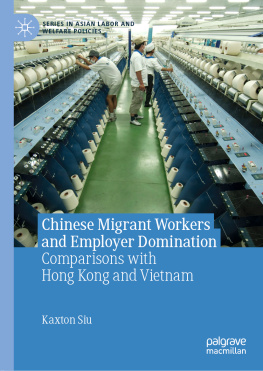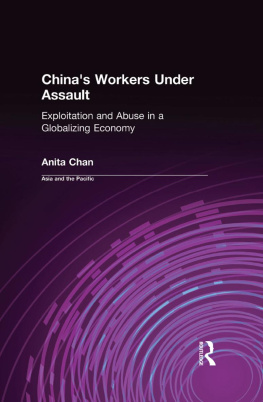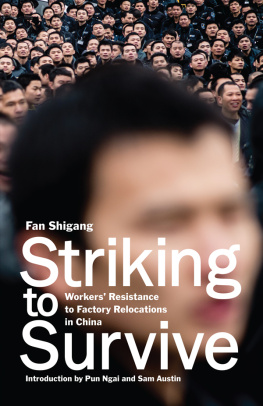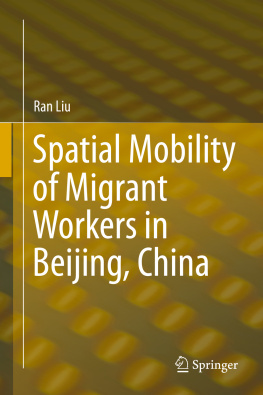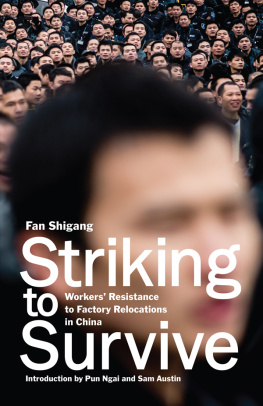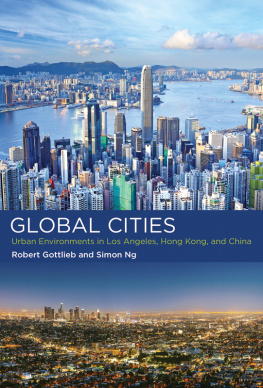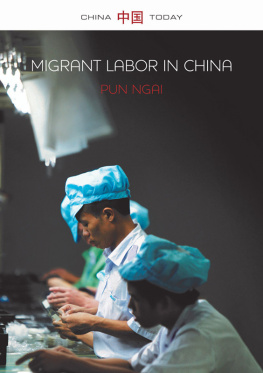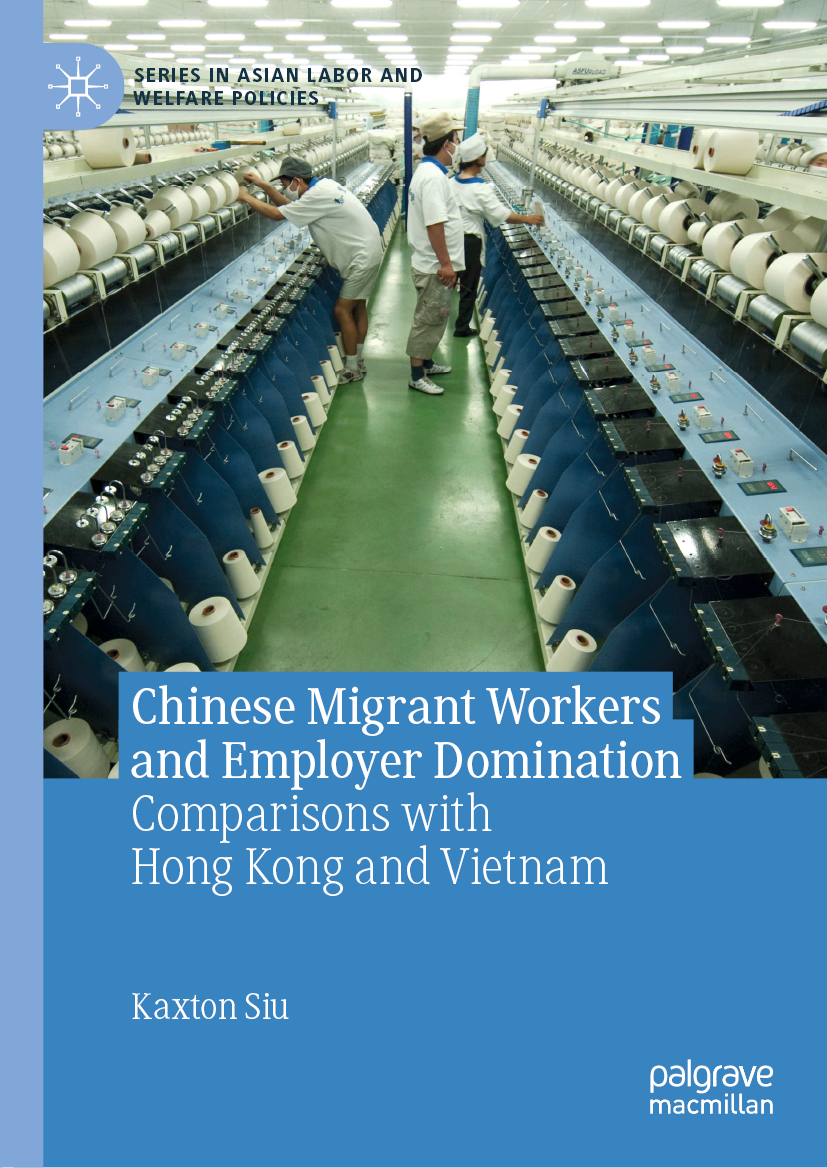Series in Asian Labor and Welfare Policies
Series Editors
Chris Chan
Chinese University of Hong Kong, Hong Kong
Dae-oup Chang
Sogang University, Korea (Republic of)
Khalid Nadvi
University of Manchester, UK
Asia has been the new focus of global social sciences. One of the key features for the rise of Asia is the creation of the largest industrial workforce in the human history. China, India and many other newly industrialized countries in Asia have been transformed as world factories for the global capitalism in the past four decades. This development involves both extensive and intensive migration of labour across Asia. Massive populations in the Asian countries, who formerly involved in traditional self- subsistence activities, have become wage labourers. In China itself, more than 260 million of rural-urban migrant labours have been created in the past three decades.
The production and the reproduction of labour in Asia have therefore become the major research themes in a wide range of disciplines such as gender studies, development studies, policies studies, employment relations, human resource management, legal studies as well as sociology, politics and anthropology.
More information about this series at http://www.palgrave.com/gp/series/14486
Kaxton Siu
Hong Kong Polytechnic University, Kowloon, Hong Kong
Series in Asian Labor and Welfare Policies
ISBN 978-981-32-9122-5 e-ISBN 978-981-32-9123-2
https://doi.org/10.1007/978-981-32-9123-2
The Editor(s) (if applicable) and The Author(s) 2020
This work is subject to copyright. All rights are solely and exclusively licensed by the Publisher, whether the whole or part of the material is concerned, specifically the rights of translation, reprinting, reuse of illustrations, recitation, broadcasting, reproduction on microfilms or in any other physical way, and transmission or information storage and retrieval, electronic adaptation, computer software, or by similar or dissimilar methodology now known or hereafter developed.
The use of general descriptive names, registered names, trademarks, service marks, etc. in this publication does not imply, even in the absence of a specific statement, that such names are exempt from the relevant protective laws and regulations and therefore free for general use.
The publisher, the authors and the editors are safe to assume that the advice and information in this book are believed to be true and accurate at the date of publication. Neither the publisher nor the authors or the editors give a warranty, expressed or implied, with respect to the material contained herein or for any errors or omissions that may have been made. The publisher remains neutral with regard to jurisdictional claims in published maps and institutional affiliations.
Cover illustration: TAO Images Limited/Alamy Stock Photo
This Palgrave Macmillan imprint is published by the registered company Springer Nature Singapore Pte Ltd.
The registered company address is: 152 Beach Road, #21-01/04 Gateway East, Singapore 189721, Singapore
Acknowledgements
This book would not have been possible without the help of many people. First of all, I am greatly indebted to all the garment workers I surveyed and interviewed in Shenzhen, Hong Kong, and Ho Chi Minh City. I owe a special debt of gratitude to the workers living in Jade Village and working in Pearl Factory. Without their willingness to let me live with them, ask questions about their daily routines, and share their joy and pain, this book would not have been possible. Though I cannot acknowledge their contributions by name, I appreciate their kindness, frankness, friendliness, and hospitality. I am also thankful to the factory owners, managers, foremen, and line leaders for their assistance with my research. The description of the people in this book might not convey the full richness of their experiences I gathered through my observations and interactions with them. Responsibility for the interpretations presented in this book, including any errors, lies solely with me.
Many people have helped me shape and complete this project. Jonathan Unger, my supervisor at the Australian National University, has patiently and consistently given his attention and advice to my research and writing. Jon was an ever-present source of comfort during my four years of doctoral study. Whenever I was panicked, stressed, or confused, Jon would knock on my office door, sit on my couch, and give me his insightful advice. Without his encouragement and guidance, my work on the project would have been much delayed. Another equally important person who has consistently helped me finish this project is Anita ChanJons wife, my dearest mentor, friend, and research collaborator. I had known Anita before I began my Ph.D. Since then, I have collaborated with her on several projects. Without her support, my doctoral study would not have been launched. During years of collaboration, Anita and I have developed many new ways to approach labor issues in China and Vietnam. A lot of Anitas insights have been incorporated into the analysis of this book; thus, I cannot claim all the credit for the outcomes of this project. Of course, responsibility for any errors in the analysis of the book lies solely with me. The Unger familys support even extends beyond my academic life. That Jon and Anita allowed me to stay in their house while they were away during my final stage of doctoral study not only created an opportunity for me to engage in thought-provoking discussions with Brge Bakken, Tom Cliff, and Lina Tan, but also eased a lot of my financial difficulty. I also have to thank Ashley Carruthers, a member of my dissertation committee. His first-hand knowledge of Vietnamese society has helped me understand the culture of Vietnamese workers. Other colleagues at the Contemporary China Centre of the Australian National University, especially Andrew Kipnis, Bob Miller, Pete Van Ness, Lior Rosenberg, Brendan Forde, and Beibei Tang, encouraged me to finish this project. I also owe a debt to my professors in Hong Kong who shared their experiences and knowledge with me, particularly Professors Alvin So, Agnes Ku, and Pun Ngai. Without Alvins invitation to his conference on Class, Power and China in Hong Kong in 2010, I would have not met Michael Burawoy and Ching Kwan Lee, whose work helped influence my decision to place domination as my books core theme.
I thank Chris Smith and Simon Clarke for their critical reviews on my early draft of the manuscript. I would like to thank Korean anthropologist Chae Suhong for his help in my fieldwork in Vietnam. My friends, Chris King-Chi Chan, Elaine Hui, Choy Yuk Yuk, Kevin Lin, Helen Law, Ivan Franceschini, Xue Hong, Hongzen Wang, Stephen WK Chiu, Eva Hung, Julian Groves, and Wai-Yip Ho provided insightful comments and lasting comradeship during my project. I also thank Wong Hon Tung, Lai Tsz Chung, Ming, Patricia Tse, Vincent Lee, Allison Ley, Angus Tse, and Charles Fung for their research assistance to this project. Sara Crowley-Vigneau gently chaperoned the manuscript through the reviewed process, and the team at Palgrave Macmillan saw it successfully through production. The anonymous reviewers clearly spent a lot of time looking back and forth over my draft manuscript, and the detailed comments guided me through the final revisions. Special thanks go to Franky Tang and Nelson Chow whose support was beyond mere words.

